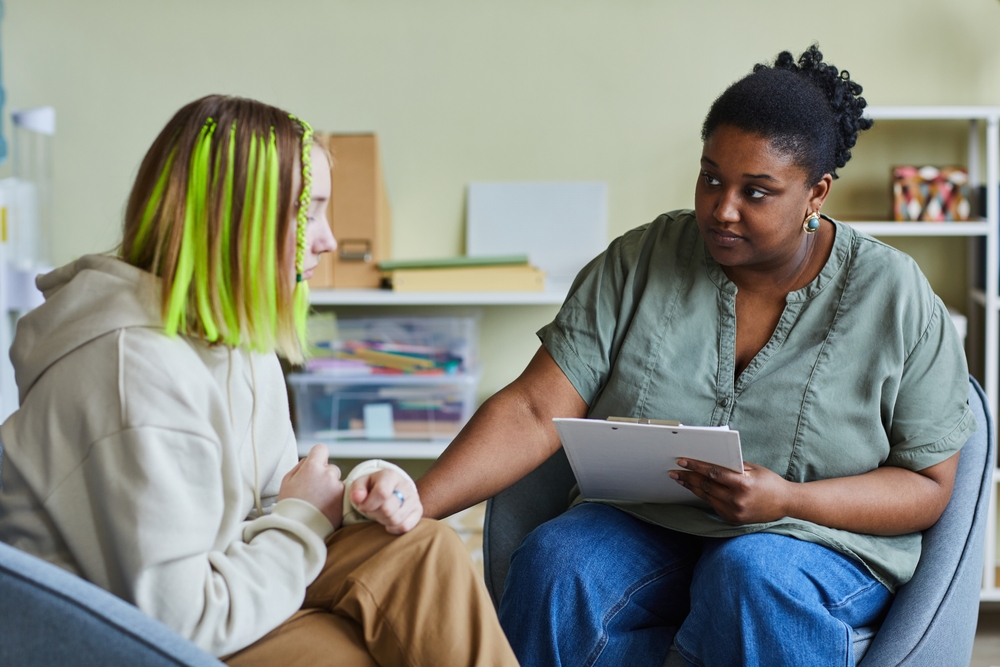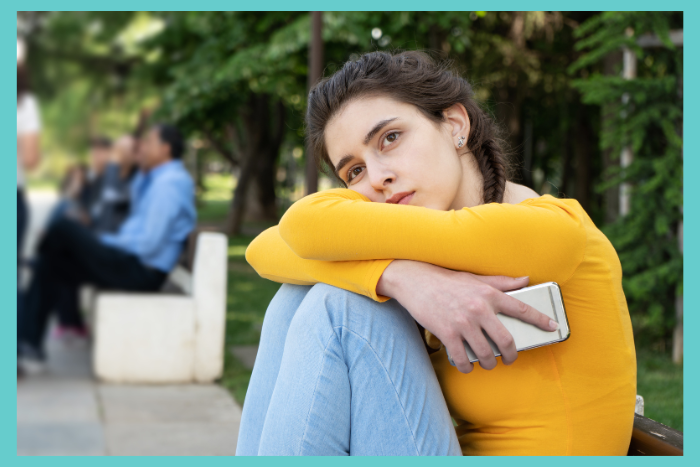Traumatic events can impact people of any age. Though post-traumatic stress disorder (PTSD) is often thought of as something only adults deal with, children, adolescents and teenagers can experience it as well. By late adolescence, approximately two-thirds of youth have experienced trauma, and by age 18, 8% of those traumatized people will have met enough criteria to be diagnosed with PTSD. It can be caused by a number of things, including:
- Physical, sexual or verbal abuse
- A serious illness or injury
- Witnessing or being involved in a car accident
- Experiencing a violent crime, such as kidnapping, physical assault and murder
- Undergoing major surgery
- Dealing with community violence, like a school shooting or the death of a friend or loved one
- Experiencing discrimination due to race or sexual/gender identity
- Experiencing natural disasters
People react differently to intense stress and trauma, so the same traumatic event can trigger varying levels of PTSD in different people. If you think your teenager is dealing with symptoms of PTSD, don’t wait to get help. Untreated PTSD can lead young people to struggle with emotion regulation and experience long-lasting negative feelings such as anxiety, fear, sorrow and humiliation. The sooner they can process their traumatic experience, the sooner they can address their symptoms.
Signs and symptoms of PTSD in teens
Teenagers dealing with PTSD experience many of the same symptoms as adults with PTSD. However, teens are more likely to engage in impulsive and self-destructive behaviors. If your teenager is engaging in risky behavior due to PTSD, consult a mental health care professional immediately. Here are some other common signs and symptoms teens with PTSD may experience:
- Flashbacks to the traumatic event
- Continually remembering or reexperiencing the traumatic event
- Increased nightmares
- Intrusive memories
- Insomnia
- Feeling numb
- Being easily triggered by things that remind them of the traumatic event
- Increased anger and irritability
- Hypervigilance or being easily startled
- Physical reactions such as back pain, migraines, stomachaches and muscle tension
- Feeling depressed
- Withdrawing from friends and experiences they used to enjoy
- Having difficulty in school, including trouble concentrating and completing work
- Not wanting to talk about the traumatic event
- Wanting to avoid anything or anyone associated with the trauma
- Having a negative view of themselves and the world
Depending on the type of trauma and how severe it is, your teen may experience different symptoms of PTSD.
What impacts a trauma response?
If you’re trying to help your teen with their PTSD, you have to take into account how much this trauma is affecting them. Let’s take a look at some things that can impact the severity of a traumatic event:
- How severe the trauma is — Being in a minor fender bender will probably have less of a negative impact on your teen than getting involved in a serious car accident, though everyone reacts differently to these experiences. If you take into account the severity of the trauma they’ve experienced, it can help you better understand how much they’ve been affected.
- How the parents react to the trauma — Whether you realize it or not, the way you process things can affect how your child processes them as well. If you’re devastated by the death of a close family member, your child may also feel that loss more severely.
- How close or far away the child is from the trauma — The more recent the trauma, the more keenly people tend to feel it. Something that happened several years ago may not have as much of an impact on your child as a traumatic event from last week would. However, it’s common for PTSD symptoms to develop months or years afterward.
Trauma impacts us all in different ways. To know how to help your teen, you have to understand how their trauma has impacted them.
How to help your teen with PTSD
If your teen is experiencing PTSD, it’s important to be there for them and help them find the support they need. You can do this in a few different ways:
- Communicate openly — It can be uncomfortable to talk about grief, but communication is a valuable tool to help your teen process their trauma. If this is the first time they’ve experienced grief or trauma, they may not know what to expect. Talking them through their feelings can help reassure them that what they’re experiencing is natural.
- Be patient — Trauma can show up in surprising ways. Your teen may withdraw, anger easily, become clingy, or engage in risky behavior. Try to be patient as your teenager experiences new and confusing emotions.
- Don’t expect perfection — After a traumatic event, your teen may not want to or be able to maintain the kind of life they had before. They may struggle to keep up with friendships, do poorly in school and withdraw even from the people closest to them. Give your teen grace as they try to get back into the swing of their routine.
- Seek outside help — If your teen has had a strong reaction to a traumatic event, psychotherapy may be the tool they need to deal with their PTSD. A mental health professional can help them process their trauma and give them tools to deal with their symptoms.
Dealing with PTSD can be a long and frustrating process. It’s important to give your teen — and yourself — grace as you work through this together. At Embrace U, we’re here to help your teen work through their PTSD and learn how to cope with their symptoms in a healthy way.
If your child is struggling with their mental health and they require further support beyond their regular therapy sessions, contact our team today for more information or to schedule an initial appointment.




